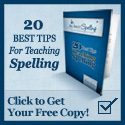
Ages 6-8
Reading Instruction- Complete 100 EZ lessons with further phonics instruction taught as needed to read. Goal to be independent reader by age 8-9 and able to read own school books. If needed use Pathway readers grade 1-3 for my kids that need a more controlled vocabulary during this working to fluency phase.
"It may be profitable for the little German child to work through all possibly dreary combinations of letters before he is permitted to have any joy in 'reading,' because wherever these combinations occur they will have the sounds the child has learned laboriously. The fact that English is anomalous as regards the connection between sign and sound, happily exonerates us from enforcing this dreary grind." Home education pg. 223
Oral Narrations- Daily and in all subject areas. Allow them to develop their fluency in narration during these years. Sequencing, main idea, details are all specific comprehension skills that are learned through narration. Foundation of Charlotte Mason method.
"Narrating is an art, like poetry-making or painting, because it is there, in every child's mind, waiting to be discovered, and is not the result of any process of disciplinary education. " Home Education pg. 231
Copy work- starting with about 10 min when 6 yo and working up to 20 min when 8yo. Use literary examples such as poems, passages from literature, memorable quotes, etc. They should write only as much as they can write perfectly. Start some informal grammar study to include
1. Capitalize sentences and proper nouns
2. End sentences with punctuation.
"Transcription should be an introduction to spelling. Children should be encouraged to look at the word, see a picture of it with their eyes shut, and then write from memory." Home Education pg. 239
Dictation- Start simple dictation around age 8.
"A child of eight or nine prepares a paragraph, older children a page, or two or three pages. The child prepares by himself, by looking at the word he is not sure of, and then seeing it with his eyes shut. Before he begins, the teacher asks what words he thinks will need his attention. He generally knows, but the teacher may point out any word likely to be a cause of stumbling. He lets his teacher know when he is ready." Home Education pg. 242-243
Reading- Reading most schoolbooks on their own. Narration to check comprehension.
"Writing, of course, comes of reading, and nobody can write well who does not read much." Vol. 6 pg. 234
Oral Narration- Continue in all subject areas.
"The simplest way of dealing with a paragraph or a chapter is to require the child to narrate its contents after a single attentive reading,––one reading, however slow, should be made a condition; for we are all too apt to make sure we shall have another opportunity of finding out 'what 'tis all about' "School Education pg. 180
Copy work- Continue with copy work with progressively longer passages. Instruction of grammar with copy work.
Grammar- Introduce parts of speech and basic types of sentences and a few punctuation and capitalization rules. Consider using Simply Grammar during this time if the informal study needs more focus.
"In Language, by twelve, they should have a fair knowledge of English grammar, and should have read some literature." School Education pg. 236
Dictation- Allow kids to really study each passage of dictation. Expect the kid's spelling to improve during these years through their dictation practice.
Written Narration- start with 1 per week and increase to 2-3 a week during this time. Written narration are for informational purposes and not for teaching grammar and spelling. Give the kids a couple of years to get proficient with written narration and then could possible edit and review one written narration per month of so if needed.
"Form II (A and B), (ages 9 to 12). Children in this Form have a wider range of reading, a more fertile field of thought, and more delightful subjects for composition. They write their little essays themselves, and as for the accuracy of their knowledge and justice of their expression, why, 'still the wonder grows.' " A Philosophy of Education pg. 193
Optional typing program if they have not learned to type by now.
Optional Sequential Spelling if spelling needs to improve at age 11-12.
Formal Grammar- Jenson's grammar worked as slow as necessary for them to grasp all concepts-may take several years to work through.
Oral Narrations- Continue doing daily oral narrations from all reading
Written Narrations- Introduce Format Writing during these years and encourage them use as resource when writing their narration. Review and edit 1 written narration per week. Encourage more frequent written narration working up to daily in a variety of subjects.
Dictation- continue using longer passages.
Ages 14-18
Grammar- Refer to Elements of Style and reviewing and editing of own writing. Finish Jenson's Grammar if not done. Consider Jenson's Punctuation if needed.
Oral Narrations- Continue daily oral narrations some formal as in a speech or presentation. Find and use speech curriculum during these years or take outside speech class.
Written Narrations- Daily and in all subjects. Use Format writing to structure daily narrations.
"Forms V and VI. In these Forms some definite teaching in the art of composition is advisable, but not too much, lest the young scholars be saddled with a stilted style which may encumber them for life University tutor is the best that can be adopted; that is, a point or two might be taken up in a given composition and suggestions or corrections made with little talk. Having been brought up so far upon stylists the pupils are almost certain to have formed a good style; because they have been thrown into the society of many great minds, they will not make a servile copy of any one but will shape an individual style out of the wealth of material they possess; and because they have matter in abundance and of the best they will not write mere verbiage. ." A Philosophy of Education pg.194-195









No comments:
Post a Comment